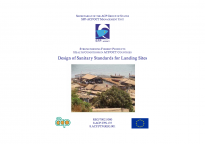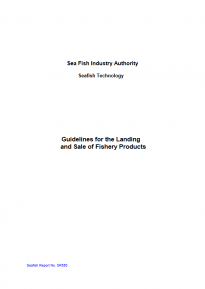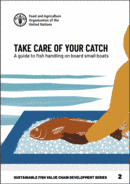Services and Infrastructure for On-board Handling in Large Scale Fisheries
For fishers to effectively put good on-board handling practices that maintain quality and reduce waste into place, key services that should be made available to them are:
- Clean water supply for cleaning equipment and personal hygiene
- Supply of clean ice and water
- Service providers for fish boxes, insulated boxes, cleaning equipment
- Reliable source of Electricity
- Proper Waste management
- Landing site management
- Engine repair, servicing and supplies
- Fuel
- Boat building and repair
- Port and harbour facilities
- Financial services and insurance
- Extension services for knowledge and skills
- Advanced research and development which can be funded from levies provided by vessel owners and the public sector
Investment in improved technologies will be facilitated by good access to affordable finance. Furthermore, access to knowledge and skills related to good practice will be influenced by the quality of extension and educational services and the access fishers, captains and gear owners have to such services. Key infrastructure will be landing facilities and ports that enable safe and hygienic handling and sale of fish and the delivery of the aforementioned services.
Key Publications
Fishing Harbour Planning, Construction and Management This manual provides a handy reference and the means for integrating Hazard Analysis and Critical Control Points (HACCP) and European Union Directive recommendations on hazard-free seafood directly into the fishing port’s design. | |
Design of Sanitary Standards for Landing Sites This publication is designed to assist policy makers and local consultants in their work to develop modern and efficient landing sites capable of landing and handling fish to the required standards. | |
Guidelines for the Landing and Sale of Fishery Products These guidelines provide advice on maintaining standards of fish quality and food safety, and on maximizing value through efficient landing and sale operations, and is an intended reference for trade and official bodies. |
More Resources
More Resources
31 October 2023














